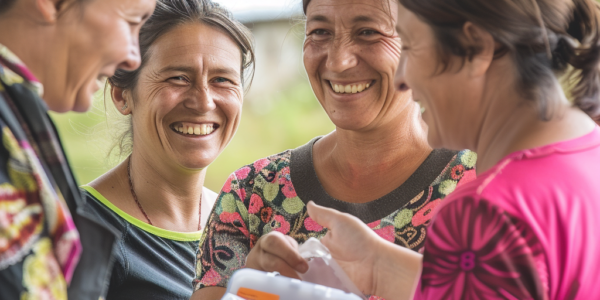Irregular Periods and Cervical Cancer: What Women Need to Know
Irregular periods can sometimes be the only warning sign of cervical cancer. Women must pay attention to their bodies and take note of any changes in their menstrual cycles, as irregular periods can be indicative of an underlying health issue like cervical cancer. Dr. Jyoti Mehta, MD Radiation and Clinical Oncologist at TGH Onco Life Cancer Centre, emphasizes the importance of actively monitoring and addressing changes in menstrual patterns to maintain reproductive health and prevent cervical cancer. Symptoms to watch out for include unusual discharge, abnormal vaginal bleeding, pelvic pain, discomfort during intercourse, and irregular periods. It is crucial for women to be aware of these symptoms and seek medical attention if they experience any signs of cervical cancer.
Keytruda Shows Promising Results in Cervical Cancer Trial
Merck’s Keytruda has shown promising results in a recent cervical cancer trial, raising hopes for a broader FDA approval in the near future. The trial, known as KEYNOTE-A18, demonstrated that Keytruda, in combination with chemoradiotherapy (CRT), significantly improved overall survival (OS) in patients with earlier-stage cervical cancer. Keytruda’s previous FDA approval, granted in October 2021, allowed its use in combination with chemotherapy for the treatment of persistent, recurrent, or metastatic cervical cancer. However, this approval was subject to certain restrictions, including the requirement for tumors to express the PD-L1 biomarker at a combined positive score (CPS) of at least 1. The recent success of Keytruda in the KEYNOTE-A18 trial has reignited hopes for a broader FDA approval, potentially expanding the reach of this groundbreaking immunotherapy to benefit a larger population of cervical cancer patients.
Transforming Health Care: Fighting Cervical Cancer in Marginalized Communities
Home-test kits and mobile labs for detecting cervical cancer are transforming health care in remote or marginalized communities. Magdalena Rothova, director of the Association for Culture, Education and Communication (ACEC) in Slovakia, is leading the charge to reduce deaths from cervical cancer in Europe. By empowering marginalized communities with the tools for early detection and intervention, initiatives like the PRESCRIP-TEC project are paving the way for improved cervical cancer outcomes in regions where access to traditional screening methods may be limited.
African countries unite to fight against cervical cancer
Health campaigners in Africa emphasize the need for policy realignment, technology investment, and public education to combat cervical cancer. With high caseload and deaths, policymakers and health advocates from 13 African countries are meeting in Kenya to discuss new tools and interventions. The focus is on policy reforms, funding, vaccination, and training of health workers to reduce the burden of cervical cancer in Africa.
Cancer Risk and Mortality Rates in India Compared to US and Canada
The risk of developing cancer before the age of 75 in India is significantly lower than in the US and Canada, with a likelihood of 10.6% compared to 34.3% and 32.2% respectively. However, the risk of death from cancer in…
India’s Finance Minister Highlights Commitment to Preventing Cervical Cancer Through Vaccination Program
Cervical cancer is a prevalent issue affecting women globally. According to the World Health Organisation (WHO), an estimated 604,000 women were diagnosed with cervical cancer in 2020, with approximately 342,000 succumbing to the disease. Despite its common occurrence, cervical cancer…
Renewed Plea for Better Uptake of Free NHS Cervical Cancer Screening
Amidst the hustle and bustle of daily news, it’s crucial to take a moment to focus on health matters that affect millions of people worldwide. Cervical cancer, a potentially life-threatening disease, is a significant concern for women, with around 3,000…







